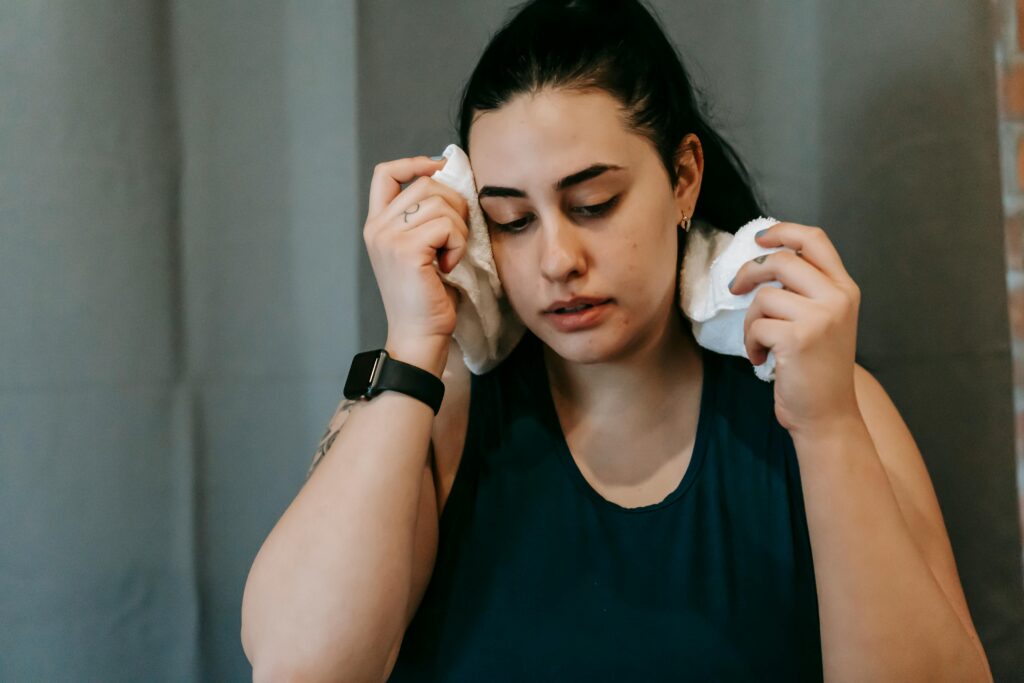Spread the love
Excessive sweating during sleep, also known as night sweats, can be caused by a variety of factors, ranging from benign causes to potentially serious underlying health conditions. Let’s look at some possible explanations of why I sweat so much when I sleep.

Excessive Sweating During Sleep
You can also like this Blog post:- How Your Sleep Position Affects Your Health.
General Physiological Response
- Sweating during sleep is a natural physiological function that helps regulate body temperature.
- Your body may produce sweat in response to changes in room temperature or fluctuations in your body’s internal thermostat.
Room Temperature And Bed
- Sleeping in a very hot room or using heavy bedding can cause your body to overheat, which can lead to increased sweating.
- Additionally, some fabrics like polyester or flannel can trap heat and moisture, exacerbating the problem.
Hormonal Up Downs
- Hormonal changes, such as those associated with menopause or fluctuating thyroid hormone levels, can contribute to night sweats.
- In women, night sweats are commonly experienced during perimenopause and menopause due to hormonal changes.

Infection
- Night sweats can be a symptom of various infections, including viral, bacterial, or fungal infections.
- Conditions such as tuberculosis, HIV/AIDS, and some types of cancer can also cause night sweats as the body’s immune system reacts to the infection.
Medicines
- Certain medications, including antidepressants, hormone therapy, and certain types of medications used to reduce fever or manage pain, may list night sweats as a side effect.
Stress And Anxiety
- Emotional stress and anxiety can trigger the body’s “fight or flight” response, causing increased sweating even during sleep.
- Additionally, stress can disrupt normal sleep patterns, making night sweats even worse.

Sleep Disorders
- Conditions such as sleep apnea, which involves interrupted breathing during sleep, can lead to increased sweating as the body struggles to maintain adequate oxygen levels.
Nervous Conditions
- Some neurological disorders, such as autonomic dysreflexia or autonomic neuropathy can disrupt the body’s ability to regulate temperature and cause excessive sweating during sleep.
Metabolic Status
- Disorders affecting the body’s metabolism, such as hyperthyroidism or diabetes can cause night sweats as a result of hormonal imbalance or fluctuations in blood sugar levels.

Alcohol And Drug Use
- Consumption of alcohol or certain medications, especially those that affect the central nervous system, can disrupt normal sweating patterns and lead to night sweats.
If you’re experiencing frequent or severe night sweats, it’s important to consult with a healthcare professional. They can help identify the underlying cause and recommend appropriate treatment or lifestyle modifications to alleviate your symptoms.


1 thought on “Excessive Sweating During Sleep”